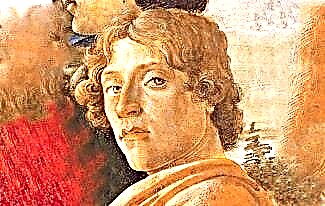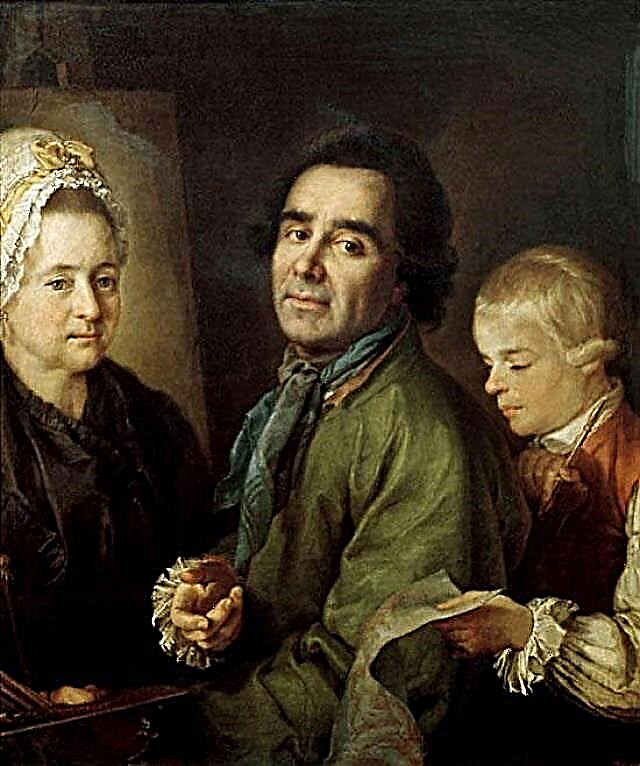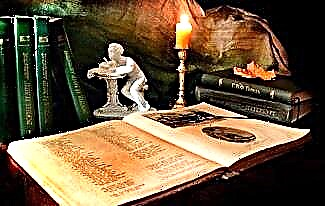Karl Heinrich Marx (1818-1883) - German philosopher, sociologist, economist, writer, poet, political journalist, linguist and public figure. Friend and colleague of Friedrich Engels, with whom he wrote the "Manifesto of the Communist Party".
The author of the classic scientific work on political economy "Capital. Criticism of Political Economy ". Creator of Marxism and the theory of surplus value.

There are many interesting facts in the biography of Karl Marx, which we will tell about in this article.
So, here is a short biography of Marx.
Biography of Karl Marx
Karl Marx was born on May 5, 1818 in the German city of Trier. He grew up in a wealthy Jewish family. His father, Heinrich Marks, worked as a lawyer, and his mother, Henrietta Pressburg, was involved in raising children. The Marx family had 9 children, four of whom did not live up to adulthood.
Childhood and youth
On the eve of Karl's birth, Marx the elder converted to Christianity in order to remain in the rank of judicial adviser, and a few years later his wife followed his example. It is worth noting that the spouses belonged to large families of rabbis who were extremely negative about converting to any other faith.
Heinrich treated Karl very warmly, taking care of his spiritual development and preparing him for a career as a scientist. An interesting fact is that the future propagandist of atheism was baptized at the age of 6, along with his brothers and sisters.
Marx's worldview was greatly influenced by his father, who was an adherent of the Age of Enlightenment and the philosophy of Emmanuel Kant. His parents sent him to a local gymnasium, where he received high marks in mathematics, German, Greek, Latin and French.

After that, Karl continued his education at the University of Bonn, from which he soon transferred to the University of Berlin. Here he studied law, history and philosophy. During this period of his biography, Marx showed a great interest in the teachings of Hegel, in which he was attracted by atheistic and revolutionary aspects.
In 1839 the guy wrote the work "Notebooks on the history of Epicurean, Stoic and Skeptical Philosophy." A couple of years later, he graduated from an external university, defended his doctoral dissertation - "The difference between the natural philosophy of Democritus and the natural philosophy of Epicurus."
Social and political activity
Early in his career, Karl Marx planned to obtain a professorship at the University of Bonn, but for a number of reasons he abandoned this idea. In the early 1940s, he briefly worked as a journalist and editor of an opposition newspaper.
Karl criticized the policies of the current government, and was also an ardent opponent of censorship. This led to the fact that the newspaper was closed, after which he became interested in the study of political economy.
Soon Marx published a philosophical treatise On the Critique of Hegel's Philosophy of Law. By the time of his biography, he had already gained great popularity in society, as a result of which the government decided to bribe him, giving him a position in government agencies.
Due to his refusal to cooperate with the authorities, Mark was forced to move with his family to Paris under the threat of arrest. Here he met his future colleague Friedrich Engels and Heinrich Heine.
For 2 years, the man moved in radical circles, familiarizing himself with the views of the founders of anarchism, Pera-Joseph Proudhon and Mikhail Bakunin. At the beginning of 1845 he decided to move to Belgium, where, together with Engels, he joined the underground international movement "Union of the Just."
The leaders of the organization instructed them to develop a program for the communist system. Thanks to their joint efforts, Engels and Marx became the authors of the Communist Manifesto (1848). At the same time, the Belgian government deported Marx from the country, after which he returned to France, and then left for Germany.
Having settled in Cologne, Karl, together with Friedrich, began to publish the revolutionary newspaper "Neue Rheinische Zeitung", but a year later the project had to be canceled due to the defeat of workers' uprisings in three German districts. This was followed by repression.
London period
In the early 50s, Karl Marx emigrated with his family to London. It was in Britain in 1867 that his main work, Capital, was published. He devotes a lot of time to studying various sciences, including social philosophy, mathematics, law, political economy, etc.
During this biography, Marx was working on his economic theory. It is worth noting that he was experiencing serious financial difficulties, unable to provide his wife and children with everything they needed.
Soon Friedrich Engels began to provide him with material assistance. In London, Karl was active in public life. In 1864 he initiated the opening of the International Workers' Association (First International).
This association turned out to be the first major international organization of the working class. It is important to note that branches of this partnership began to open in many European countries and the United States.
Due to the defeat of the Paris Commune (1872), the Karl Marx Society moved to America, but after 4 years it was closed. However, in 1889 the opening of the Second International was announced, which was a follower of the ideas of the First.
Marxism
The ideological views of the German thinker were formed in his youth. His ideas were based on the teachings of Ludwig Feuerbach, with whom he initially agreed on many issues, but later changed his mind.
Marxism means a philosophical, economic and political doctrine, the founders of which are Marx and Engels. It is generally accepted that the following 3 provisions are of great importance in this course:
- the doctrine of surplus value;
- materialistic understanding of history;
- the doctrine of the dictatorship of the proletariat.
According to a number of experts, the key point of Marx's theory is his concept of the development of a person's alienation from the products of his labor, the refusal of a person from his essence and his conversion in capitalist society into a cog in the production mechanism.
Materialistic history
For the first time the term "materialistic history" appeared in the book "German Ideology". In subsequent years, Marx and Engels continued to develop it in the "Manifesto of the Communist Party" and "Critique of Political Economy."
Through a logical chain, Karl came to his famous conclusion: "Being determines consciousness." According to this statement, the basis of any society is production capabilities, which support all other social institutions: politics, law, culture, religion.

It is extremely important for society to maintain a balance between production resources and production relations in order to prevent a social revolution. In the theory of materialist history, the thinker made a distinction between slaveholding, feudal, bourgeois and communist systems.
At the same time, Karl Marx divided communism into 2 stages, the lowest of which is socialism, and the highest is communism, devoid of all financial institutions.
Scientific communism
The philosopher saw the progress of human history in the class struggle. In his opinion, this is the only way to achieve effective development of society.
Marx and Engels argued that the proletariat is the class that is capable of eliminating capitalism and establishing a new international classless order. But to achieve this goal, a world (permanent) revolution is required.
"Capital" and socialism
In the famous "Capital" the author explained in detail the concept of the economy of capitalism. Karl paid much attention to the problems of capital production and the law of value.
It is important to note that Marx relied on the ideas of Adam Smith and David Ricardo. It was these British economists who were able to articulate the labor nature of value. In his work, the writer discussed various forms of capital and labor force participation.
According to the theory of the German, capitalism initiates economic crises by the continuous discrepancy between variable and constant capital, which later leads to the undermining of the system and the gradual disappearance of private property, which is replaced by public property.
Personal life
Karl's wife was an aristocrat named Jenny von Westfalen. For 6 years, the lovers were secretly betrothed, as the girl's parents were against their relationship. However, in 1843, the couple officially married.

Jenny turned out to be a loving wife and companion of her husband, who gave birth to seven children, four of whom died in childhood. Some biographers of Marx claim that he had an illegitimate child with housekeeper Helena Demuth. After the death of the thinker, Engels took the boy on bail.
Death
Marx grievously suffered the death of his wife, who passed away at the end of 1881. Soon he was diagnosed with pleurisy, which rapidly progressed and ultimately led to the death of the philosopher.
Karl Marx died on March 14, 1883 at the age of 64. About a dozen people came to say goodbye to him.
Photo by Karl Marx
















